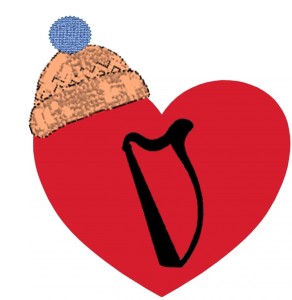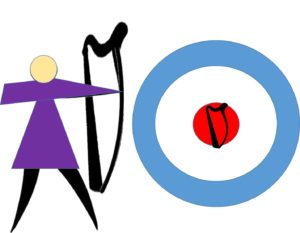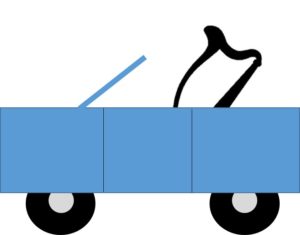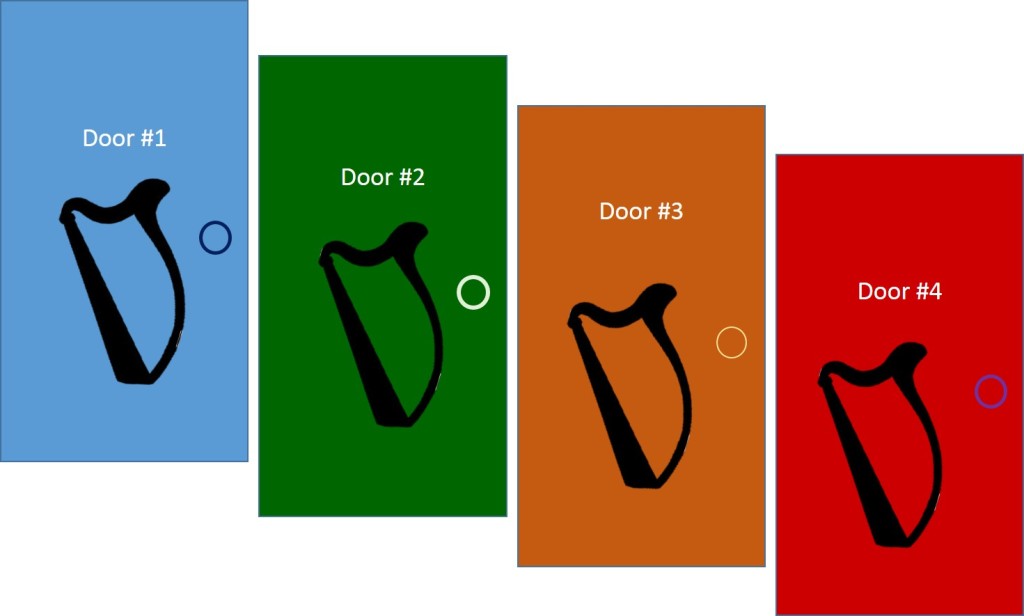You have so many things to do during the sweet, sweaty days of summer and it is only natural that you’d want to spend some of the time on your harp! I hope you’ll consider joining us for the 20th anniversary Lever Harp Camp 2014, August 14th-16th – in South Central Pennsylvania. Harp Camp is easily accessible from anywhere and to harpers at any level.
Kris and I work hard to provide a highly personalized, fun-filled and supportive environment so that you can extend your technical skills no matter where you’re starting. We also work on building a healthy sense of self-esteem and encourage our attendees to try new things while developing an understanding of the skills necessary to reach individual performance goals.
 We put together a format tailored to you: no frustration of not getting something that you aren’t ready for. And no waiting for people with less experience to understand what is being presented. We tailor to you – where you are at the time we’re working.
We put together a format tailored to you: no frustration of not getting something that you aren’t ready for. And no waiting for people with less experience to understand what is being presented. We tailor to you – where you are at the time we’re working.
Each workshop you take will be geared toward your proficiency and comfort level. These three days will be filled with creativity and fun. Workshops cover diverse topics from learning to performance to composition and improvisation.
We are working on the specific topics right now and we’ll post them soon. Games, Creative and Directed Ensemble and age appropriate activities will all be included!
If you have always wanted to try the harp without the commitment, we will have rentals available and a separate novice track designed to give you the optimum experience of trying the harp – with no strings attached!
Harp Camp has small class sizes to give each attendee the personal attention for which we are known. For more information, check our website for updates in April or contact us. Harperkris (at) hotmail.com or jentheharper (at) gmail.com








